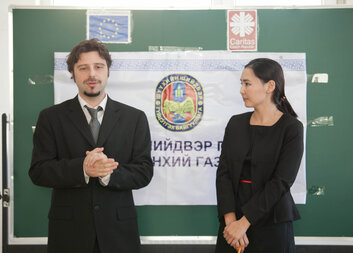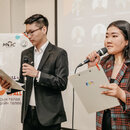Democratization is a gradual and continuous process, which needs to take into account a country’s socio-economic and cultural context. Each country and society is free to choose and develop its own model, in a locally driven process, but those models must be consistent with universal human rights principles as expressed in relevant international and regional conventions. Thus in order to support civil society in Mongolia to uphold human rights (political, civil, economic, social and cultural) and to promote democratization, CCR implemented the “Supporting civil society to promote human rights and democratization in Mongolian prisons” project.
The project implemented in partnership with the Prison Fellowship Mongolia (PFM), a local NGO under the financial support of the European Union in 2013-2015.
The overall objective of the project was to support civil society in Mongolia to uphold human rights (political, civil, economic, social and cultural) and to promote democratization.
The specific objectives of the project were:
- To enhance and protect the rights of the most vulnerable sectors of society.
- To support the prevention of torture and cruel, inhuman and degrading treatment.
Target groups:
(i) The main target group will be the staff of the Staff of the Court Decision Enforcement Administration, namely the social workers (78) and the management team (120).
(ii) The NGOs working with prisoners
Two NGOs, the Prison Fellowship Mongolia (PFM) and the Centre for Protection of Breaches on Human Rights (CPBHR) received support to raise their capacity to undertake their activities and increase the impact of their actions, and the CPBHR received a grant to enable them to provide legal counselling services to prisoners.
(iii) The Mongolian University of Science and Technology (Social Work Department) and the National University of Education (Social Work Department) received support to create up-to-date content for training prison social workers, through the assistance of an international expert as well as through increased cooperation with professional social workers.
Final beneficiaries:
(i) The prisoners.
(ii) The general public (citizens and voters).
In order to reach the objectives of the project, the project aimed to achieve 4 expected results & complete dozens of innovative activities:
Expected Result 1: Social workers of the prisons have received the required training and equipment to perform their jobs effectively;
Expected Result 2: A survey on Human Rights has been conducted in the prisons and published
Expected Result 3: Information on human rights has been provided to the CDEA staff and the prisoners
Expected Result 4: Specialized legal counselling is accessible to the prisoners in the prisons of Ulaanbaatar





